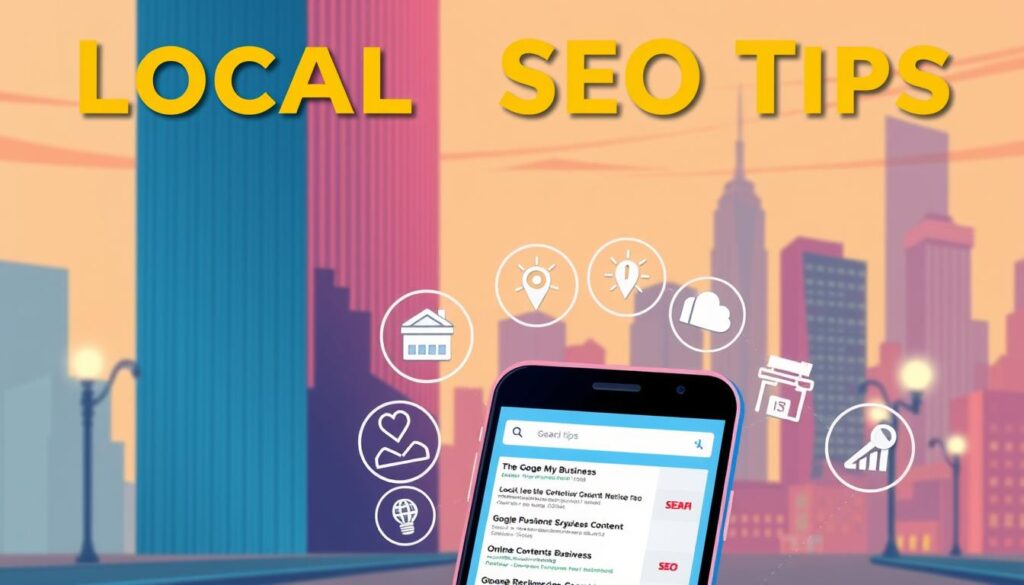In today’s fast-paced digital landscape, businesses are constantly seeking effective ways to connect with their audiences. An email marketing agency specialises in crafting and managing tailored email campaigns that drive engagement and conversions. These agencies focus solely on creating strategies that resonate with your target audience, helping you stand out in a crowded market.
Over the years, email marketing has evolved from simple text messages to sophisticated, interactive campaigns. In the UK, where digital engagement is at an all-time high, businesses are leveraging email marketing to unlock new opportunities. With an average ROI of 42:1, email marketing remains one of the most cost-effective channels for businesses looking to maximise their digital efforts.
Specialised email marketing agencies bring unique value to the table by offering expertise in segmentation, personalisation, and automation. These strategies not only enhance engagement but also ensure that your campaigns are tailored to your audience’s preferences. Whether it’s improving open rates or boosting conversion rates, a well-crafted email campaign can make all the difference.
Key Takeaways
- Email marketing agencies specialise in creating tailored campaigns that drive engagement and conversions.
- UK businesses can achieve an average ROI of 42:1 through effective email marketing strategies.
- Personalised and segmented campaigns significantly improve open rates and conversion rates.
- Automation and interactive elements are key to modern email marketing success.
- Email marketing remains one of the most cost-effective digital marketing channels.
Introduction to Email Marketing in the UK
As digital communication continues to evolve, email marketing remains a cornerstone of business strategies in the UK. It serves as a direct line to your audience, offering unparalleled precision and personalisation.
Importance of Email in Digital Marketing
Email is a cornerstone of digital marketing, providing businesses with a direct line to their audience. It allows for precise targeting and personalisation, making it a powerful tool for engagement and conversion.
With an average ROI of £36 for every £1 spent, email marketing is a cost-effective channel that delivers measurable results. Its ability to integrate seamlessly with other digital strategies makes it indispensable for modern businesses.
Current Trends and Market Data
Recent data highlights the growing impact of email marketing in the UK. Over 60% of emails are opened on mobile devices, emphasising the need for responsive designs. Open rates typically range between 15% to 25%, while click-through rates average around 2% to 5%.
Personalisation plays a key role, with tailored emails seeing a 29% higher open rate and 41% higher click-through rate. Segmentation further enhances performance, with segmented campaigns achieving 14.31% higher open rates and 100.95% higher click-through rates.
| Metric | UK Average | Impact |
|---|---|---|
| ROI | £36:£1 | High return on investment |
| Open Rate | 15-25% | Indicates audience engagement |
| CTR | 2-5% | Reflects content relevance |
These statistics underscore the effectiveness of email marketing in driving traffic, sales, and customer engagement. Integrating email into a broader digital strategy amplifies its impact, making it a vital component for UK businesses.
Understanding What Is an Email Marketing Agency
As businesses strive to connect with their audiences more effectively, the role of specialised experts has become crucial. An email marketing agency is a dedicated partner that focuses solely on designing and managing tailored campaigns to drive customer engagement and conversions.
Definition and Scope
These agencies offer a wide range of services, from crafting compelling campaigns to managing subscriber lists. Their expertise ensures that every email sent is strategically aligned with your business goals, whether it’s boosting open rates or improving conversion rates.
By leveraging advanced tools and techniques, email marketing agencies help businesses create personalised and interactive campaigns. This level of specialisation allows for more precise targeting, ensuring that your messages resonate deeply with your audience.
Why Specialisation Matters
Specialised agencies bring a level of expertise that broader digital marketing firms often can’t match. Their focus on email marketing means they stay at the forefront of trends and technologies, ensuring your campaigns are always optimised for the best results.
When you work with an email marketing agency, you gain access to a team that understands the intricacies of customer behaviour and how to leverage data for better engagement. This tailored approach not only enhances your campaigns but also fosters stronger customer relationships.
For more insights on how email marketing agencies can elevate your strategies, visit this resource to explore expert guides and case studies.
In contrast to general digital marketing agencies, specialised email marketing agencies provide a focused approach that delivers measurable results. Their deep understanding of customer behaviour and campaign execution makes them invaluable partners for businesses aiming to maximise their digital efforts.
The Evolution of Email Marketing Techniques
Over the years, email marketing has transformed significantly, evolving from simple text-based messages to sophisticated, interactive campaigns. This journey reflects advancements in technology and shifting consumer expectations, making email marketing a dynamic and powerful tool for businesses.
From Simple Text to Interactive Emails
The first mass email marketing campaign was sent in 1978 to around 400 recipients, generating $13 million in sales. This humble beginning laid the groundwork for what would become a cornerstone of digital marketing. As technology advanced, so did email marketing techniques. The introduction of email service providers (ESPs) like Mailchimp in the early 2000s revolutionised how companies designed and sent campaigns, making it easier to create visually appealing and targeted emails.
Today, emails are no longer just plain text. They now feature interactive elements like clickable buttons, surveys, and even videos. These multimedia enhancements not only make emails more engaging but also provide companies with deeper insights into customer behaviour, helping them refine their strategies for better results.
Shifting Consumer Expectations
Consumer expectations have played a significant role in driving innovation in email marketing. With over 60% of emails being opened on mobile devices, companies have had to adapt by ensuring their emails are responsive and optimised for smaller screens. Personalisation has also become key, with tailored subject lines and content increasing open rates by up to 26% and click-through rates by 50%.
Moreover, the rise of automation and AI has enabled businesses to send timely, relevant emails based on user behaviour. This level of personalisation not only enhances customer experience but also drives higher engagement and conversion rates. As a result, companies are now relying on more sophisticated strategies to achieve measurable results and stay ahead of the competition.
Benefits of Hiring an Email Marketing Agency
In the competitive UK market, businesses are always looking for ways to enhance their digital strategies. Hiring an email marketing agency can be a game-changer, offering numerous benefits that elevate your brand and customer engagement.
Enhanced Campaign Strategies
Specialised agencies bring expertise in creating well-crafted marketing campaigns. They leverage advanced tools for segmentation and personalisation, ensuring your messages resonate deeply with your audience. For instance, personalised emails see a 29% higher open rate, making your campaigns more effective. The strategic planning and execution provided by these agencies ensure your campaigns are optimised for the best results.
Improved Customer Engagement
By outsourcing to an email marketing agency, you save valuable time and optimise targeting to reach the right audience. This allows your internal team to focus on core business activities. Expert agencies drive better brand recognition and customer retention through tailored campaigns and consistent messaging. For example, 86% of consumers prefer hearing from brands via email, highlighting its effectiveness in building strong customer relationships.
Additionally, agencies ensure high deliverability rates, crucial for making your campaigns effective. They emphasise quality over quantity in contact list management, maximising engagement through better data use. With their expertise, you can achieve higher ROI, with email marketing averaging £36 for every £1 spent.
For more insights on selecting the right partner, visit this guide to explore expert advice and case studies. Working with a specialised agency offers measurable benefits, from improved engagement to increased conversions, making them invaluable for your digital strategy.
Comparing In-House versus Agency Email Services
When deciding how to manage your email marketing efforts, one key question arises: should you handle it in-house or outsource to an agency? This decision can significantly impact your campaign’s success and overall business goals.
Resource Allocation and Expertise
Building an in-house team requires substantial resource allocation. Hiring skilled professionals can be time-consuming and costly, with average recruitment times exceeding 50 days. Additionally, the financial investment in salaries, benefits, and training can be substantial, often exceeding £70,000 per employee annually. In contrast, agencies offer specialised expertise without the need for upfront hiring costs, providing access to a team of experts proficient in the latest tools and strategies.
Flexibility and Consistency
Agencies often provide greater flexibility, scaling services according to your needs. They ensure consistent campaign delivery and strategic alignment with your business objectives. In-house teams, while offering control, may struggle with consistency due to limited resources and potential turnover. Agencies mitigate this risk by maintaining a dedicated, experienced team focused on your email marketing success.
In summary, while in-house teams offer control, agencies provide cost-effective expertise, flexibility, and consistency. For businesses aiming to maximise campaign effectiveness, specialised resources and agency partnerships are often the optimal choice.
Key Services Offered by a Full-Service Email Marketing Agency
A full-service email marketing agency provides comprehensive support to help businesses achieve their digital goals. From strategic planning to creative execution, these agencies offer a wide range of services designed to drive success and enhance your marketing process.
Campaign Strategy and Planning
The foundation of any successful email campaign lies in careful planning. Agencies specialise in conducting deep-dive market research to understand your audience better. They develop tailored strategies that align with your business objectives, ensuring every campaign is purpose-driven. This strategic approach helps refine the overall marketing process, leading to better engagement and conversion rates.
Content Creation and Design
Creating compelling content is at the heart of effective email marketing. Agencies focus on crafting high-quality, engaging copy and visually appealing designs that capture attention. Professional design ensures your emails stand out, making it easier to convey your message. The integration of modern technologies and automated tools further enhances the creative process, ensuring seamless execution from concept to launch.
With a team of experts dedicated to delivering success, these agencies manage every step of the process. Their goal is to provide marketing agency help that not only meets but exceeds your expectations, ensuring your campaigns are both effective and impactful.
Integrating Email Marketing with Digital Marketing
When it comes to creating a cohesive digital strategy, email marketing shines brightest when seamlessly integrated with other channels. This synergy allows businesses to deliver a consistent brand experience across all touchpoints, enhancing customer engagement and driving better results.
Cross-Channel Synergies
To align your email campaigns with social media, content marketing, and PPC, start by sharing audience insights across teams. For instance, use social media data to refine email segments. Next, ensure your messaging is consistent across all platforms, creating a unified brand voice. Automation tools like Salesforce can help streamline this process, ensuring timely and relevant communication at every step.
For example, a retail brand might use email to follow up on abandoned carts, while simultaneously retargeting those customers with personalised ads on social media. This integrated approach not only improves conversion rates but also fosters a seamless customer journey.
By taking a strategic, step-by-step approach to integration, businesses can unlock the full potential of their digital marketing efforts. This holistic strategy ensures that every campaign, whether via email, social media, or search, works together to achieve your goals.
Discover how automation can enhance your cross-channel marketing strategyand take your campaigns to the next level.
Understanding the Email Automation Process
In today’s digital age, email automation has become a cornerstone of modern marketing strategies. It allows businesses to send targeted messages to their audience without manual intervention, making it a powerful tool for scaling campaigns efficiently.
The benefits of automation are clear. It streamlines your email marketing strategy, ensuring consistent delivery and freeing up your team to focus on creative tasks. By automating routine processes, you can manage campaigns more efficiently and reach a larger audience without increasing your workload.
A well-crafted marketing strategy leverages automation to personalise outreach. For example, automated workflows can send tailored messages based on user behaviour, such as purchase anniversaries or abandoned carts. This level of personalisation not only enhances engagement but also drives conversions.
Automation also integrates seamlessly with broader digital marketing practices. By connecting automated email sequences with social media campaigns or CRM systems, you can create a cohesive brand experience. This integration ensures consistent messaging across all channels, leading to better customer engagement and loyalty.
Examples of effective automated workflows include welcome series, re-engagement campaigns, and product recommendation emails. These workflows not only improve customer interaction but also provide valuable insights into user behaviour, helping you refine your strategy for better results.
Personalisation and Customer Engagement Strategies
Personalisation is key to making your email campaign resonate with your audience. By tailoring messages to individual preferences, you build stronger connections and drive higher engagement. This approach ensures your email marketing campaign stands out in crowded inboxes.
Segmentation and Targeted Messaging
Segmentation allows your team to create targeted campaigns that address specific customer needs. For example, using data on past purchases or browsing behaviour, you can send highly relevant offers. This strategy not only boosts open rates but also conversion rates, as seen in many successful campaigns.
Tailored Content for Better Response
Tailored content enhances the effectiveness of your email marketing campaign. Personalising subject lines with the recipient’s name can increase open rates by 26%. Additionally, using location-based images can improve click-through rates by 29%. These strategies demonstrate how personalisation can significantly impact your campaign’s success.
| Strategy | Benefit | Impact |
|---|---|---|
| Personalisation | Increased relevance | 26% higher open rates |
| Segmentation | Targeted messaging | 29% improved click-through rates |
| Tailored Content | Enhanced engagement | Higher conversion rates |
By focusing on personalisation and segmentation, your team can create compelling email campaigns that deliver measurable results, fostering customer loyalty and driving business growth.
Tracking Metrics and Analysing Campaign Success
When it comes to measuring the success of your campaigns, tracking the right metrics is essential. Leading platforms provide sophisticated tools to monitor performance, helping you understand what works and what doesn’t. This data-driven approach allows you to make informed decisions and refine your strategy for better results.
Key metrics to focus on include open rates, click-through rates, and conversion rates. Open rates indicate how engaging your subject lines are, while click-through rates show how relevant your content is. Conversion rates, on the other hand, reveal how effective your campaign is at driving desired actions. These metrics provide a clear picture of your campaign’s impact and help identify areas for improvement.
| Metric | Benefit | Impact |
|---|---|---|
| Open Rate | Measures engagement | Indicates subject line effectiveness |
| Click-Through Rate | Reflects content relevance | Shows audience interest |
| Conversion Rate | Drives desired actions | Directly impacts ROI |
Working closely with your client is crucial for understanding their objectives and performance. By sharing insights and data, you can align your strategy with their goals, ensuring everyone is on the same page. For example, analysing open rates might reveal that certain subject lines resonate more with your audience, leading to iterative adjustments for future campaigns.
Continuous improvement is the cornerstone of successful campaigns. By regularly analysing data and making adjustments, you can optimise performance and achieve better results. Whether it’s refining your targeting or enhancing your content, data-driven insights are invaluable for driving growth and engagement.
Addressing Digital Privacy and Compliance in the UK
Digital privacy and compliance are crucial for businesses in the UK, especially in email marketing. With regulations like GDPR and PECR, ensuring your campaigns are legally sound is essential. Non-compliance can lead to fines and damage to your reputation.
Agencies implement strict measures to protect subscriber data. This includes encryption, secure databases, and regular audits. These steps ensure data safety and build trust with your audience.
Permission-based marketing is key. It means subscribers opt-in to receive your emails, which is a legal requirement. Proper list management involves cleaning your database and respecting unsubscribe requests promptly.
Best practices include clear privacy policies and transparency about data use. This ethical approach fosters trust and loyalty, making your campaigns more effective.
| Compliance Measure | Benefit | Impact |
|---|---|---|
| GDPR Compliance | Protects personal data | Builds trust and avoids legal issues |
| PECR Adherence | Ensures legal email practices | Enhances engagement and conversions |
| Regular Audits | Identifies vulnerabilities | Improves overall security |
By focusing on compliance, you safeguard customer engagement and drive sustainable sales. For more on UK email marketing laws, visit the ICO website.
How to Choose the Right Email Marketing Agency for Your Business
Selecting the right partner for your email marketing needs is a critical decision that can significantly impact your business’s digital success. With so many options available, it’s important to evaluate potential agencies based on their expertise, tools, and alignment with your goals.
Evaluating Agency Expertise
Start by assessing the agency’s experience and past performance. Look for a portfolio that showcases successful campaigns and client testimonials. A reputable agency will have a proven track record in creating strategies that drive engagement and conversions. They should also be well-versed in using advanced tools like segmentation and automation, which are essential for delivering measurable results.
Budgeting and ROI Considerations
When budgeting, consider the cost of hiring an email marketing agency, which typically ranges from £300 to £500 per month. Compare this with the potential ROI, which can be as high as 3,600%. Ensure the agency can demonstrate how they will help you achieve your goals within your budget. Clear communication and alignment with your business objectives are key to making the right choice.
By focusing on these practical criteria, you can select an agency that not only meets your needs but also enhances your digital marketing efforts, leading to sustainable growth and customer engagement.
Conclusion
In today’s competitive UK market, businesses are continually seeking innovative ways to connect with their target audience. A dedicated email marketing agency offers tailored solutions that can significantly enhance your digital strategy. These experts specialise in creating campaigns that drive engagement and conversions, ensuring your messages resonate with your audience.
Working with an email marketing agency provides access to advanced tools and techniques, such as segmentation and automation. These strategies not only improve open rates but also ensure your campaigns are optimised for the best results. For instance, personalised emails can see a 29% higher open rate, making your efforts more effective.
When deciding between in-house teams, freelancers, and full-service agencies, consider your business needs. Full-service agencies offer comprehensive support, from strategic planning to creative execution, ensuring your campaigns are both effective and impactful.
FAQ
How does an email marketing agency benefit my business?
An email marketing agency can help you enhance campaign strategies, improve customer engagement, and drive sales. They specialise in creating targeted content and personalised messages to ensure your audience stays engaged, leading to better results and ROI.
What services does a full-service email marketing agency offer?
A full-service email marketing agency typically provides campaign strategy and planning, content creation and design, email automation, and performance analysis. They also help with list management and cross-channel integration to ensure your digital marketing efforts are cohesive and effective.
How do I measure the success of an email marketing campaign?
You can measure success by tracking key metrics such as open rates, click-through rates (CTR), conversion rates, and engagement levels. These metrics help you understand how well your audience is responding to your content and whether your campaign is meeting its goals.
What role does personalisation play in email marketing?
Personalisation is crucial for customer engagement. By using segmentation and targeted messaging, you can create tailored content that resonates with your audience, leading to higher response rates and sales. It also helps build a stronger brand connection.
How does email marketing automation work?
Email marketing automation involves using tools to streamline and optimise your campaigns. It allows you to send timely and relevant messages to your audience based on their behaviour or preferences, saving time and improving efficiency.
What are the key considerations for digital privacy and compliance in the UK?
In the UK, you must comply with GDPR and PECR regulations. This includes obtaining explicit consent from subscribers, providing clear opt-out options, and ensuring data security. Non-compliance can result in penalties, so it’s essential to work with an agency that understands these requirements.
How can I choose the right email marketing agency for my business?
Evaluate the agency’s expertise, portfolio, and client testimonials. Consider their ability to align with your brand and goals, and consider budget and ROI. A good agency will offer a strategic approach and transparent reporting to ensure you achieve your objectives.
What is the difference between in-house and agency email services?
An in-house team may lack the expertise and resources of a dedicated agency. Agencies bring specialised knowledge, scalability, and flexibility, allowing you to focus on your core business while they handle the complexities of email marketing.










